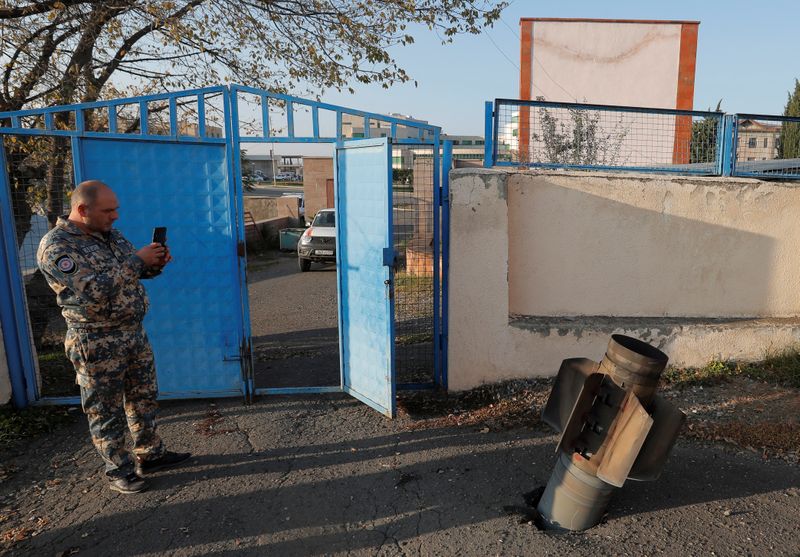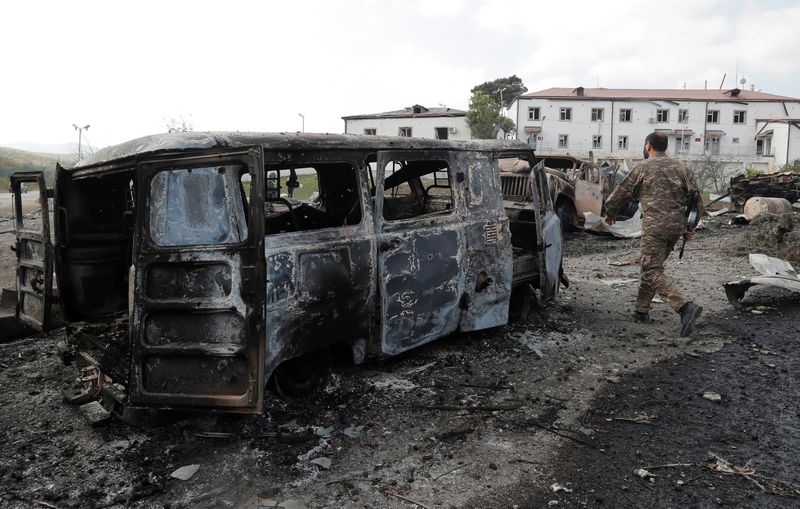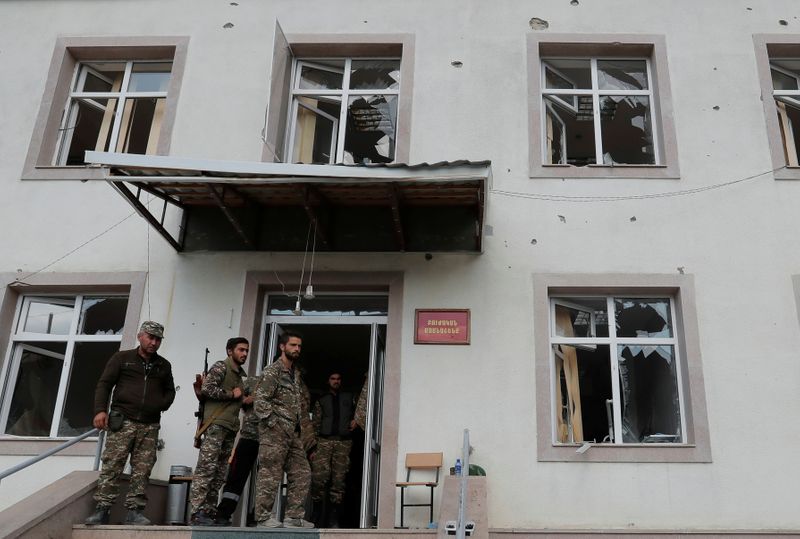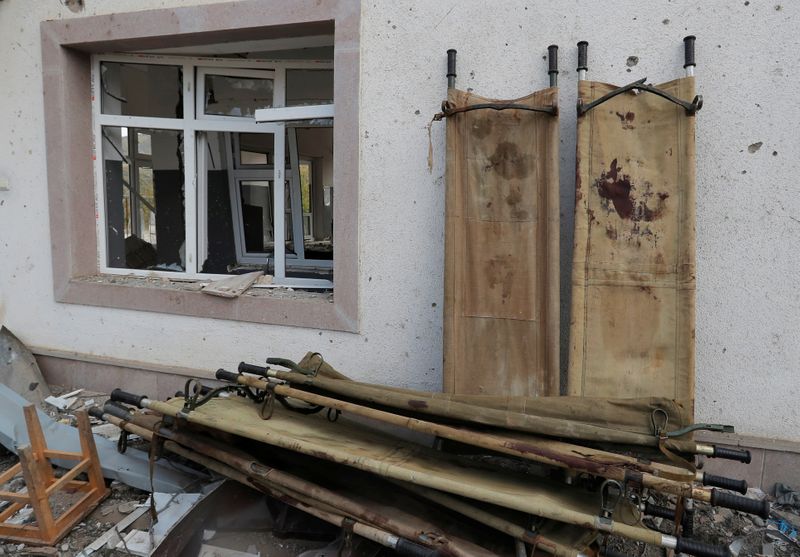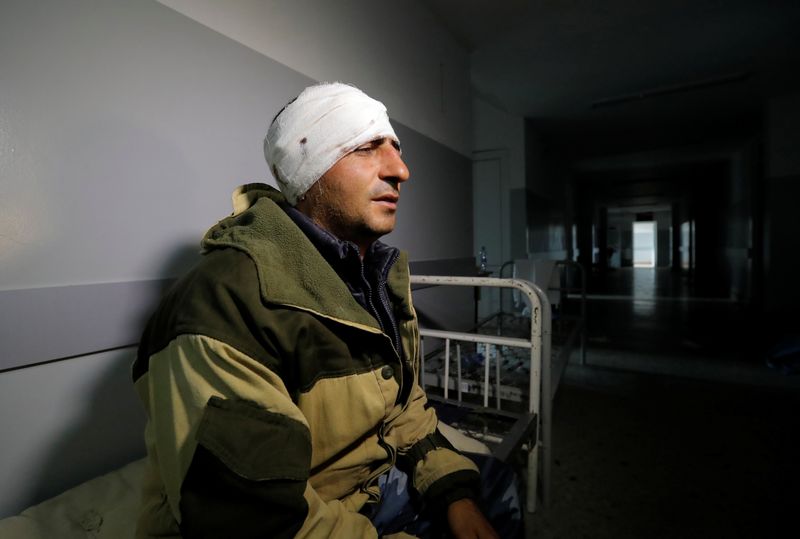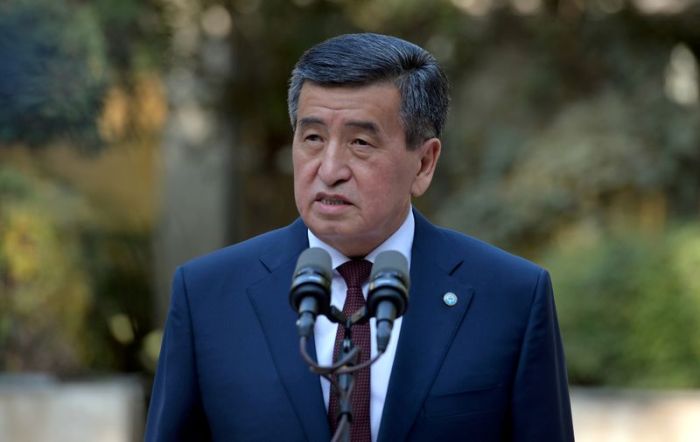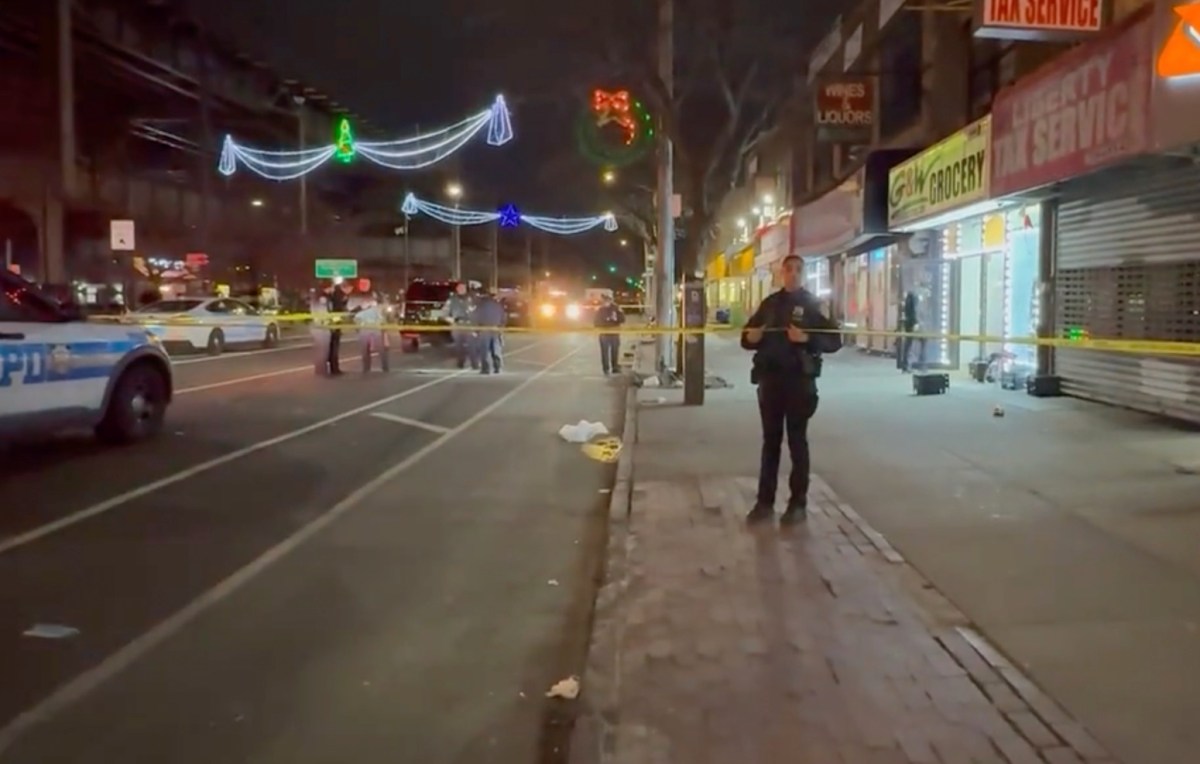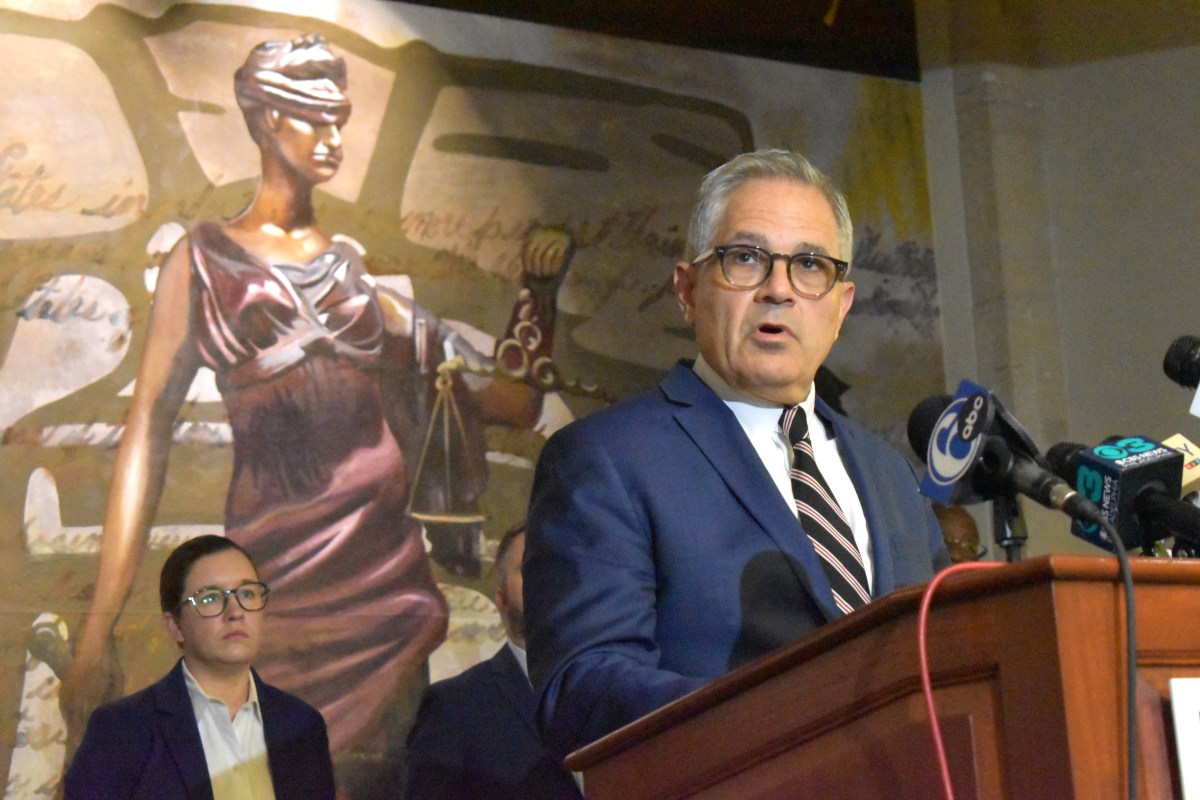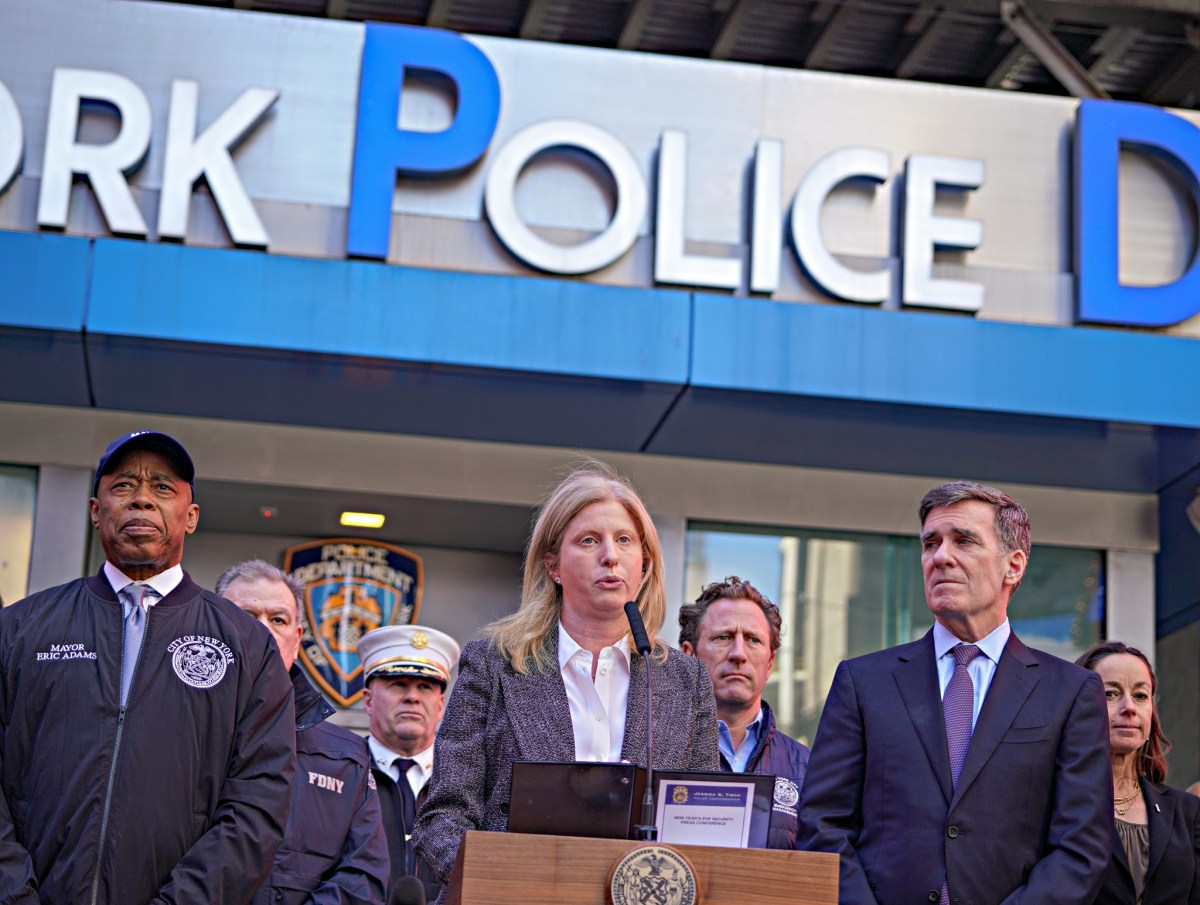BAKU/YEREVAN (Reuters) – Hopes of a humanitarian ceasefire ending fighting over Nagorno-Karabakh sank on Thursday as the death toll mounted and Armenia and Azerbaijan accused each other of launching new attacks.
Azerbaijan’s president said his country’s armed forces would take control of all regions surrounding the breakaway mountain territory if Armenia continued to “act negatively”.
Armenia accused Azerbaijan’s ally, Turkey, of not allowing aircraft carrying emergency aid to enter its airspace despite fears of a humanitarian disaster.
The ceasefire brokered by Russia last Saturday was intended to let the sides swap detainees and bodies of those killed. But it has had little impact on the fighting in and around Nagorno-Karabakh, which is internationally recognised as part of Azerbaijan but is populated and governed by ethnic Armenians.
(Graphic: Ethnic tensions in Nagorno-Karabakh, https://graphics.reuters.com/ARMENIA-AZERBAIJAN/xklpyqoddpg/armenia-azerbaijan-2020_ethnic.jpg)
Several hundred people have been killed in the deadliest flare-up of the decades-old conflict since a 1990s war over Nagorno-Karabakh killed about 30,000 people.
The ceasefire’s failure to end the fighting has stoked fears about the security of pipelines in Azerbaijan that carry natural gas and oil to international markets, and raised concerns that Turkey or Russia could be drawn into a wider conflict.
Aliyev said the peace process could begin only if Turkey were included in mediation talks, long driven by Russia, France and the United States.
“Turkey plays a role here and that is Turkey’s right. It has been like that historically,” Aliyev told Turkish broadcaster NTV.
He said he did not advocate a military solution but Azeri forces could take all of Nagorno-Karabakh’s five major regions if Armenia did not set out a specific timeline to withdraw from the area. Around 40 settlements had already “been liberated from the occupiers”, Aliyev added.
Armenian Prime Minister Nikol Pashinyan said his country was ready to implement ceasefire agreements but self-determination for Nagorno-Karabakh, which broke away from Azeri control as the Soviet Union collapsed, was a “red line” that could not be crossed.
The Russian and Turkish foreign ministers agreed by phone that a peaceful resolution was the only option, Russian news agency RIA reported.
MOUNTING DEATH TOLL
The authorities in Nagorno-Karabakh said 604 of the territory’s defence personnel had been killed since Sept. 27.
Azerbaijan had on Wednesday put its civilian death toll at 43 and four more were killed and three wounded at a funeral in its Terter region when an artillery shell fell on a cemetery, the Azeri prosecutor-general’s office said.
It said two civilians had also been wounded in shelling of the Aghdam area. Azerbaijan does not disclose military casualties.
The Armenian prosecutor-general’s office said Azeri drones had killed two soldiers in the Vardenis region of Armenia on Wednesday, raising the Armenian military death toll so far to five. They were not involved in military action, it said.
Reuters could not independently verify the reports but a Reuters television crew witnessed shelling of Stepanakert, the main city in Nagorno-Karabakh.
Data this week showed Turkey’s military exports to Azerbaijan have risen six-fold this year. Russia has a defence pact with Armenia.
(Graphic: Turkey’s arms exports to Azerbaijan surge, https://graphics.reuters.com/ARMENIA-AZERBAIJAN/TURKEY-ARMS/oakvenzyxpr/chart.png)
The fighting, coming on top of the COVID-19 pandemic, could leave tens of thousands of people in need of aid over coming months, according to international organisations.
Zareh Sinanyan, Armenian High Commissioner for Diaspora Affairs, said the delivery of 100 tonnes of aid from the United States was being delayed as Turkey had prohibited Armenia-bound humanitarian aid flights over its airspace.
Armenia’s civil aviation committee was told on Wednesday the Qatar Airways flight from Los Angeles was cancelled but gave no reasons, said the committee’s head, Tatevik Revazyan.
Turkey’s foreign ministry, which handles airspace issues, was not immediately available to comment.
(Additional reporting by Margarita Antidze in Tbilisi; Tuvan Gumrukcu and Jonathan Spicer in Ankara; Polina Ivanova in Moscow; Writing by Sujata Rao; Editing by Timothy Heritage)

